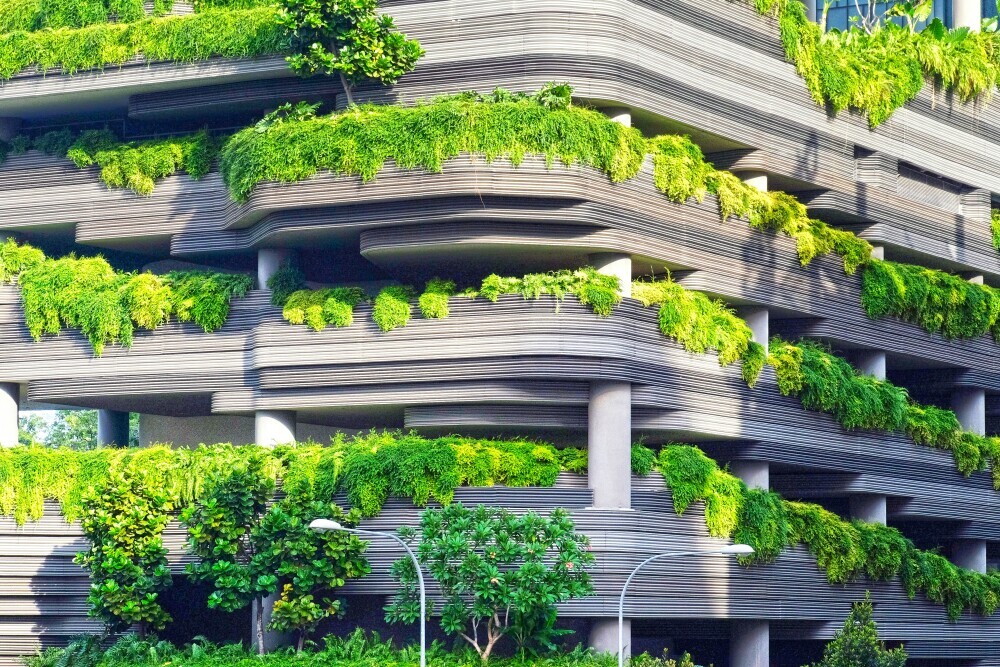
The Future of Green Construction: Trends Shaping the Industry
Green construction, a practice that prioritizes sustainability and environmental responsibility in the building industry, is rapidly gaining momentum. As the world grapples with climate change and resource depletion, the demand for eco-friendly buildings is on the rise. This blog post explores some of the key trends driving the future of green construction.
Innovative Materials in Green Construction
One of the most significant advancements in green construction is the development of sustainable and recycled materials. Traditional building materials, such as concrete and steel, have a high carbon footprint. However, researchers and manufacturers are exploring alternatives that reduce environmental impact.
- Carbon-negative materials: These materials absorb more carbon dioxide from the atmosphere than they emit during their production and use. Examples include bio-based concrete and wood-based composite materials.
- Organic and biodegradable materials: Derived from natural sources, these materials offer a sustainable and renewable option for construction. Bamboo, hemp, and cork are among the most popular choices.
While these innovative materials hold great promise, their adoption may face challenges such as cost, durability, and regulatory hurdles. However, as research and development progress, we can expect to see a wider range of sustainable materials available in the market.
Advanced Energy-Efficient Technologies
Energy efficiency is a cornerstone of green construction. By reducing energy consumption, buildings can lower their environmental impact and operating costs. Several advanced technologies are playing a crucial role in achieving this goal.
- Renewable energy sources: Solar and wind power are increasingly being integrated into building designs. Solar panels can generate electricity on-site, while wind turbines can harness the power of the wind.
- Smart building systems: These systems use advanced technologies to optimize energy consumption. By monitoring and controlling various building functions, such as heating, cooling, and lighting, smart systems can identify inefficiencies and make adjustments accordingly.
- Net-zero energy buildings: These buildings produce as much energy as they consume, often through a combination of on-site renewable energy generation and energy-efficient design.
Regulatory Changes and Policies
Government regulations and policies play a vital role in shaping the green construction industry. By setting standards and providing incentives, governments can encourage sustainable building practices.
- Impact of government regulations: Regulations can mandate energy efficiency standards, promote the use of sustainable materials, and require environmental impact assessments.
- Incentives and subsidies: Governments often offer financial incentives, such as tax breaks or rebates, to encourage green construction projects.
- Future policy trends: As the urgency of climate change grows, we can expect to see stricter regulations and more generous incentives to promote sustainable building practices.
The Role of Building Information Modeling (BIM) in Green Construction
Building Information Modeling (BIM) is a digital representation of a building project. It provides a comprehensive and collaborative platform for design, construction, and operation. BIM can play a significant role in green construction by:
- Sustainable design: BIM can help designers optimize building layouts, energy efficiency, and material usage to minimize environmental impact.
- Case studies: Numerous case studies demonstrate the successful implementation of BIM in green construction projects, resulting in cost savings, reduced waste, and improved sustainability.
- Future advancements: Advancements in BIM technology, such as generative design and augmented reality, will further enhance its capabilities for sustainable building practices.
As the construction industry continues to evolve, green building practices will become increasingly essential. By embracing innovative materials, advanced technologies, and supportive policies, we can create a more sustainable and resilient built environment for future generations.
If you would like to discuss The Future Of Green Construction: Trends Shaping The Industry do not hesitate to Call Alan on 07539141257 or 03332241257, or +447539141257 or +443332241257, you can schedule a call with Alan on https://calendly .com/alanje or drop an email to alan@alpusgroup.com.